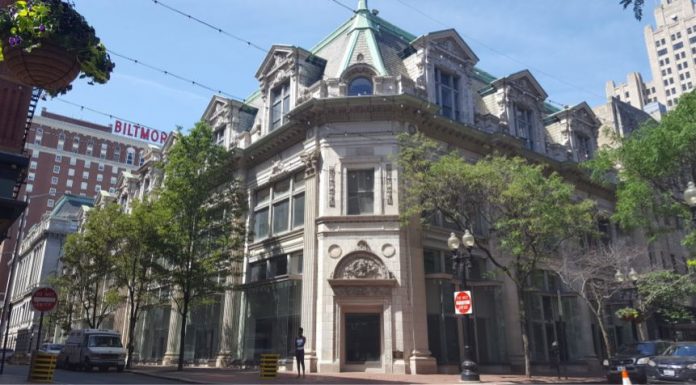
PROVIDENCE – After failed attempts to remove politics from the city’s process for giving tax breaks to developers, the Providence City Council appears to be moving in the opposite direction.
The Tax Stabilization Investment Act, recently introduced by Council President Sabina Matos with support from a majority of the council, calls for all proposed tax stabilization agreements, except those in the Interstate-195 Redevelopment and Capital Center districts, to go before the council for review and approval. Existing policies allow for administrative approval of certain, smaller projects, including those that renovate historic properties or revitalize specific neighborhoods.
The resolution marks an about-face from prior attempts to expand the administrative approval process and remove the council from considering all but the largest projects.
Matos said the new legislation will benefit developers by creating a clear, predictable process for applications, approvals and enforcement. The current array of policies do not specifically lay out requirements and the flexibility of when developers can apply for a TSA – anytime until a certificate of occupancy is issued – which Matos said makes it difficult for the city to ensure they are meeting requirements such as using minority contractors and paying adequate wages.
She defended increasing the council’s power in reviewing and approving agreements as a part of their responsibility as elected officials beholden to their constituents.
“This is what we were elected for: to make sure we are looking out for the taxpayers of Providence,” she said. “Why are we going to abdicate our responsibility to someone else?”
Matos also spoke to the importance of public comment on these agreements, which can only happen if there is a council hearing and approval.
Councilman David Salvatore offered a different take. Salvatore was among those to co-introduce the resolution, but disagreed with the expansion of council approval in TSAs. Salvatore previously introduced legislation that would have eliminated the council from all but the largest TSA applications, but his proposal has languished in a subcommittee for several years without moving forward.
Salvatore said he has not changed his mind about the need to take the city council out of the process, but liked other parts of the new legislation such as the streamlined application process and ability to enforce requirements that accompany the tax breaks.
“This is a template for developers to follow when considering asking for a tax subsidy,” he said.
“But it doesn’t remove the many layers of government bureaucracy that has hindered good development.”
Salvatore referenced prior projects, including the $39 million Hotel Hive project planned for the former Providence Journal building, as example of how the city council has “gotten in the way of good smart development.” While the council eventually approved a TSA for the project, its approval was held up in committee, causing the developer to threaten to withdraw the project if his requested tax break was not approved.
Acknowledging that there is “no appetite” among the current council to expand administrative approval as he has attempted to previously, Salvatore said he planned to reiterate his stance in discussions before the finance committee. Whether he will propose amendments to the legislation, he would not say, but added that he hoped to reintroduce his now-defunct proposal to expand administrative approval under a new, more development-friendly council.
The new legislation does not change policies for TSA in the I-195 and Capital Center districts, which are subject to state law. Developers of projects in those areas would only require council review for projects over $50 million, although the first five projects over $50 million in that area could bypass council approval.
Patricia Socarras, a spokesperson for Mayor Jorge O. Elorza, said in an emailed statement, “the administration sees this new TSA process as a step in the right direction to making a more predictable and streamlined process for development.”
Nancy Lavin is a PBN staff writer. You may reach her at LAvin@PBN.com.












